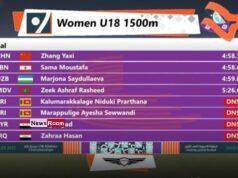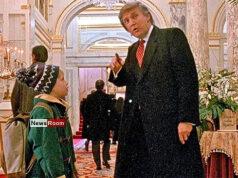Monday 11th November, 2024
Almost all extrajudicial killings have remained unsolved in this country because they have been reduced to mere political slogans. During election campaigns, politicians gain a great deal of political mileage by shedding copious tears for the victims of barbaric violence and promising to ensure that justice is served, but they forget their promises after winning elections and being ensconced in power. This is the name of the game in Sri Lankan politics.
Genghis Khan (1162-1227) became the first warrior to weaponise corpses, as it were. He laid siege to enemy fortresses and catapulted rotting corpses into them thereby causing diseases to spread there. Sri Lankan politicians have mastered the art of politicising corpses to win elections.
It may be recalled that the UNP used the tragic death of a young woman, named Premawathie Manamperi, at the hands of some savages in uniform during the 1971 JVP insurgency to drum up popular support to win the 1977 general election, but 10 years later, it set in motion its ‘Caravan of Death’, which left streets strewn with the corpses of tens of thousands of JVP activists and suspects. In 1994, Chandrika Bandaranaike Kumaratunga engineered a regime change by promising to eliminate state terror and corruption, but her government came to be characterised by rampant corruption and extrajudicial killings. In 2015, Maithripala Sirisena, backed by the UNP and the JVP, became President, promising to usher in good governance and bring to justice those who had committed crimes such as the killings of The Sunday Leader editor Lasantha Wickrematunge and famous rugby player Wasim Thajudeen during the Rajapaksa government. But that promise went unfulfilled, and Sirisena joined forces with the Rajapaksas three years later; Ranil Wickremesinghe, who was the Prime Minister in the Yahapalana government, became President with the help of the Rajapaksas in 2022!
President Anura Kumara Dissanayake, addressing an election rally in Dambulla on Saturday, reportedly vowed to ensure that the killers of Wickrematunge and Thajudeen and those who were responsible for the involuntary disappearance of Pradeep Ekneligoda would be made to face the full force of the law. One cannot but agree with President Dissanayake on the need to expedite such emblematic cases or even launch fresh probes thereinto, if necessary. The killers of Lasantha and Thajudeen and those who made Ekneligoda disappear must not be allowed to go unpunished. The President can rest assured that all right-thinking people will be with him on this score although his pledge in question has come only a few days ahead of a general election and therefore smacks of a political motive.
Besides, high-level probes must be conducted into attacks on media institutions during the Kumaratunga and Rajapaksa administrations.
However, there is something President Dissanayake, who also leads the JVP, has to do to demonstrate his bona fides as a crusader for justice if he is to prevent his critics from casting aspersions on his sincerity. He will have to order a thorough probe into the extrajudicial execution of the founder of his party, Rohana Wijeweera, who was shot and burnt alive while in police custody in 1989.
The JVP’s November Heroes’ Day event, where the slain JVP leader Wijeweera and other party leaders/cadres who perished at the hands of counterterror operatives in the late 1980s are commemorated annually, cannot be held this year in view of the upcoming general election. The JVP offshoot, Frontline Socialist Party (FSP) has accused the JVP-led NPP of having scheduled the parliamentary contest in such a way that the November Heroes’ Day (13 Nov.) falls during the mandatory cooling-off period and the government can avoid the Wijeweera commemoration. What the FSP has chosen to leave unsaid is that the JVP-led NPP has done so because it is wary of doing anything that will evoke the people’s dreadful memories of the killing spree the JVP launched in the late 1980s purportedly to resist ‘Indian expansionism’ and abort the Indo-Lanka Accord and the 13th Amendment (13A). Today, the JVP in the NPP’s clothing has done a volte-face; it has reached a rapprochement with India, denied having conducted an initiation lecture on ‘Indian expansionism’ in the late 1980s, and accepted 13A and devolution of power.
Even the widow of notorious drug dealer Makandure Madush, who became Sri Lanka’s ‘Napoleon of Crime’, has called for a thorough probe into the killing of her husband in police custody in 2020. She has sought to dispute the claim that he was killed by a rival gang. It defies comprehension why the JVP has not launched a campaign, seeking justice for its beloved founder. Has it forgotten Wijeweera?








